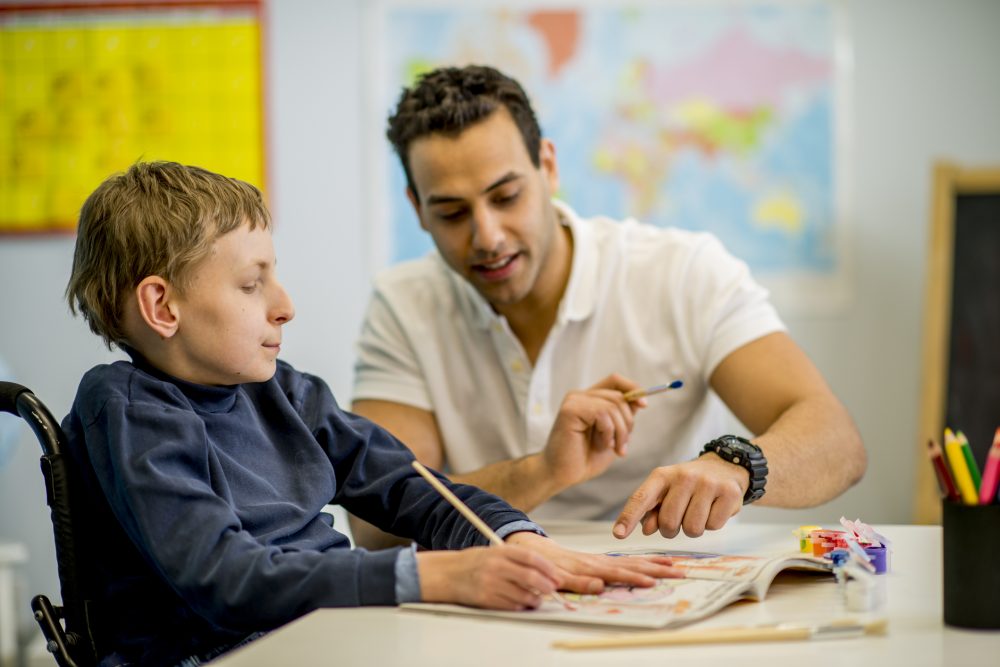Throughout the pandemic we’ve been monitoring what’s been happening in special schools and colleges and with the families of pupils who attend them. In our study, funded by the Nuffield Foundation, we twice surveyed senior leaders in 11 per cent of special settings in England and conducted follow-up interviews with 40 of them. We also interviewed 40 parents.
Our survey found that, compared with their mainstream peers, the impact of Covid has been greater for pupils attending special schools – and not just in terms of lost learning time. The findings make a strong case for the new DfE team to work with the Treasury to secure more funding, now and in the longer-term, for the SEND sector.
In May 2021, we asked headteachers where their pupils’ learning stood, compared to where they would have expected it to be, had it not been for the pandemic. They reported that overall, pupils were around four months behind in literacy and numeracy skills. This compares to an estimate of two-and-a-half to three months behind expectations reported in mainstream settings.
As with studies of the pandemic’s effects on mainstream schools, pupils in the areas of highest free school meal eligibility were furthest behind.
But unlike mainstream settings, all pupils in special settings have an education health and care plan (EHCP). That means their wider development is also monitored at school. Our survey therefore asked headteachers about the effects on other aspects of pupils’ development.
Many worry that the experience of the pandemic will result in staff leaving the profession
They reported that overall, pupils were around four months behind where they would have expected them to be in terms of their social and communications skills, developing independence and life skills, and their health and physical development.
Worryingly, headteachers reported that pupils were also around four months behind in their behaviour and self-regulation, and five months behind in terms of their emotional wellbeing and mental health.
One possible explanation for this was the government’s suspension of the legal requirement to provide health and care input that comes with an EHCP. Of course, even without that suspension, there has been severe disruption to these services throughout the pandemic.
We found that during the winter lockdown, 47 per cent of pupils attending special schools were not receiving their full health and therapy support, and 46 per cent of pupils were not receiving their full social care support (including respite care). And by the end of last academic year, over one-third of pupils in school had not had their therapeutic or care services returned.
Participants in our study were concerned about how quickly and how fully these services would recover, not just for their current students, but because they are also expecting to deal with an influx of new referrals coming their way.
Special schools remained open throughout the lockdowns, but the reality is that many pupils were unable to attend and were at home for the duration. Our interviews with parents revealed the challenges of having a child with complex needs at home 24/7 and its effects on wider family wellbeing, including that of their siblings. In extreme cases, the absence of schools’ vital input led to parental marriage breakdowns and separations.
A common refrain among school leaders was that although the government provided some recovery funding, this was insufficient. Policymakers, it was generally felt, had a limited understanding of the needs of the SEND sector and families. Many worried that the experience of the pandemic would result in staff leaving the profession, taking their highly specialised skills with them and making it all the harder to meet students’ increased needs.
Special schools have been disproportionately hit by the pandemic. That Nadhim Zahawi has previously held the DfE SEND brief gives hope that we will see a clearer acknowledgement of the current and longstanding issues they face.
But that will be cold comfort for the pupils who attend them, and for their families, who have also been hit hard, unless that understanding is accompanied by the funding to address the problem. The sector’s eyes will be on the Chancellor‘s new social care levy for that.












Your thoughts